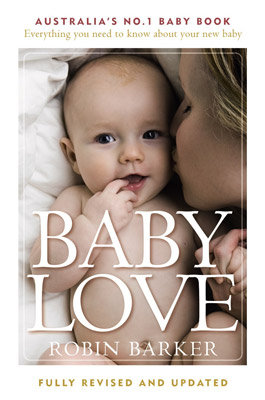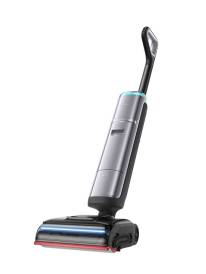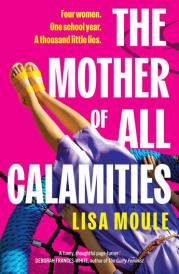Baby Love Fully Revised and Updated

Baby Love
Australian, authoritative and totally up to date, Baby Love is the only book you'll need to guide you through your baby's first year.
Australia's bestselling babycare book is loved by thousands of new parents every year. With expert advice for the first twelve months of every baby's life and full of Robin Barker's wisdom and humour, this classic guide has been fully revised, including new material on car safety and updates on circumcision, safe sleeping and controlled crying.
With over twenty-five years of hands-on experience with mothers and babies, Robin Barker knows exactly the kind of information parents are looking for. Baby Love is full of detailed material you won't find in any other book, including:
practical and informative advice on sleeping and crying
clear and concise information about getting breastfeeding right for you
advice on all aspects of your baby's nutrition, including bottle feeding
an extensive selection of nutritious recipes to tempt the fussiest eaters.
Robin Barker is a registered nurse, midwife and early childhood nurse with over thirty-five years' experience with families and babies. Robin's other books include Baby and Toddler Meals and The Mighty Toddler, both of which have been reprinted many times.
Baby Love
Macmillan
Author: Robin Barker
ISBN: 9781742613307
RRP: $35.99
Interview with Robin Barker
Question: Can you talk us through how this edition of Baby Love has been updated?
Robin Barker: There has been a new edition of Baby Love every three to four years since 1994 when it was first published because there are always a myriad of small changes, additions or deletions over three or four years that need to be made. These accumulate until there is no space left in the existing pages and bits of information end up stuck all over the place and consequently some sections get out of whack. This has implications for the index so it becomes necessary to start again, hence a new edition to get everything back into order.
Prices for equipment, childcare always need adjusting regularly as does government assistance and allowances
As well, since Baby Love is now nearly 20 years old I try to keep the language up to date as well as make reference to contemporary technology.
There is particular information that is always changing and, oddly, occasionally changing back again, for example, when to start solids, circumcision, where to sleep baby, Sudden Unexpected Death in Infants.
The main changes in my books are made due to updated research into child safety, nutrition, baby and child development. I only take note of reliable scientific research not fads and fluffy ideas that are more in the realm of opinion.
I rarely change my information relating to sleep, routines, feeding, discipline, crying, teething etc. other than to make it clearer when I become aware of readers misinterpreting what I am saying.
That is I have had no eureka moment where I have done an about turn, eg Dr Spock, about my views on the behavioural aspects of caring for babies and toddlers (apart from potty training in my toddler book, which is of no relevance here).
Question: What new research was conducted for this edition of Baby Love?
Robin Barker: Well I don't do research. My books are based on my professional qualifications (paediatric nurse, midwife, child and family health nurse) and thirty years of hands-on work with families and babies. Of course I try to keep up with research and especially research to do with child safety, infant feeding and nutrition and baby and child development.
This time round there is a growing feeling amongst immunologists that babies should start food from a spoon around four months instead of six as was recently advised as protection against the increased food allergy problems in childhood. See www.allergy.org.au. This is at odds with Breastfeeding researchers and the National Health and Medical Research's latest Infant Feeding Guidelines who in their wisdom are urging parents to wait for six months so I have attempted to give parents all the information without confusing them totally, difficult as everyone advising parents seems to be confused.
The other much more important research is that concerning co-sleeping which I have always offered as a reasonable option for parents so inclined. I can no longer do this as there is enough existing evidence to show that the safest place for babies in the first six months is in their own beds in their parent's room. This is in line with Sids and Kids and Coroner John Olle's findings http://www.coronerscourt.vic.gov.au/coroners+written+findings/.
I have also rewritten the safety section in consultation with Kidsafe. There is nothing huge there, just a lot of small changes, additions, deletions based on their excellent research.
Question: Why was it important to include updates on circumcision?
Robin Barker: Somewhat like 'food' and 'where baby sleeps' male circumcision is an area that pops up regularly and recently there has been a push by certain researchers and doctors to return to the days of routine circumcision for all babies in the first week or so following birth. This follows decades of advice against routine male circumcision because the risks of the procedure outweigh the benefits. I wanted to include the 2011 updated policy of the Royal Australasian College of Physicians (RACP) which concludes that the frequency of the diseases modifiable by circumcision, the level of protection offered by circumcision and the complication rates of circumcision do not warrant routine infant circumcision in Australia and New Zealand so that parents who are wondering what to do can bear the RACP policy in mind and not feel that circumcising their baby boy is an essential preventative procedure because it isn't.
Question: How has car safety changed?
Robin Barker: Not sure how this got in the mix. It hasn't recently. The reference possibly relates to the changes I had to cram into the previous edition when the new laws came in, in 2010.
Question: Why was it important to write this book with humour?
Robin Barker: Humour is not something I intentionally set out to do. I am only too aware how seriously people approach parenthood and how unfunny it can be.
Humour, however, in the right place at the right time can relieve tension and in the case of new parents help them lighten up a bit and realise that everyone is, more or less, in the same boat.
There is an increasing seriousness about raising children hanging like a cloud over many parents which is detracting from the delight and funny side of the business. It is a shame that so much guilt-laden doom and gloom is spread around about the raising of children. We all need to lighten up a bit and let parents laugh over their mistakes a bit more.
MORE



